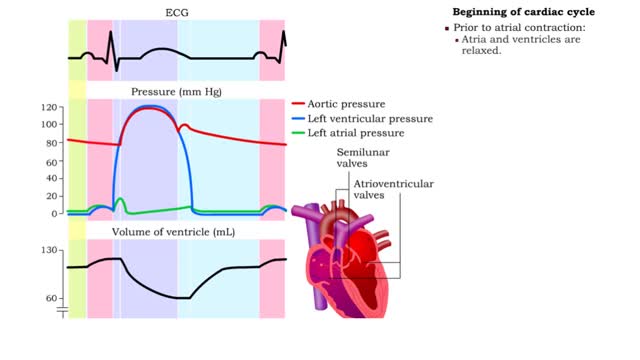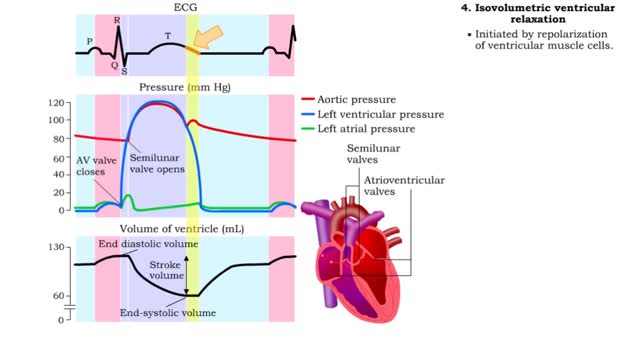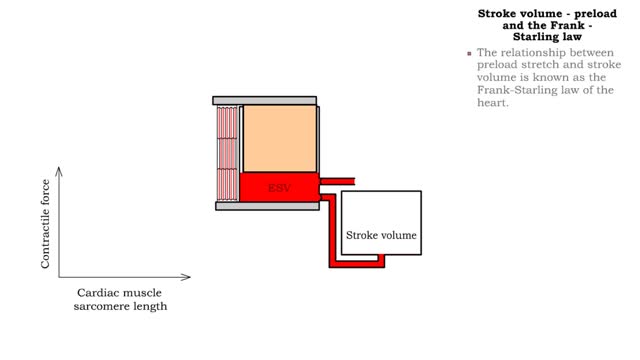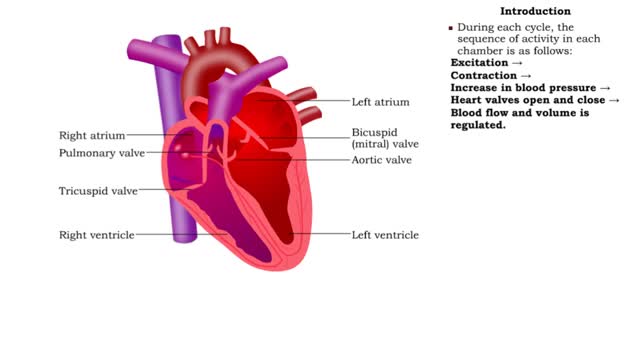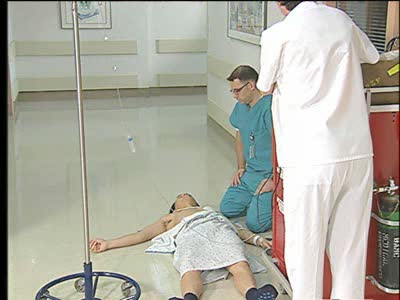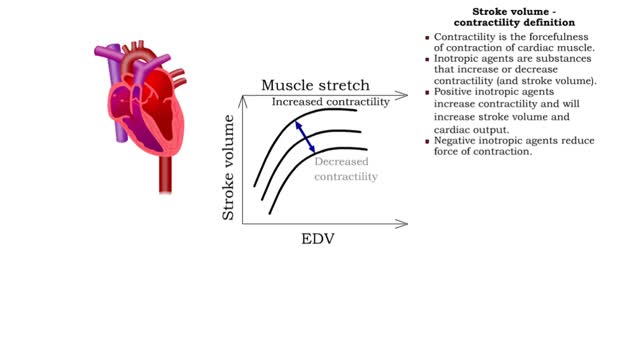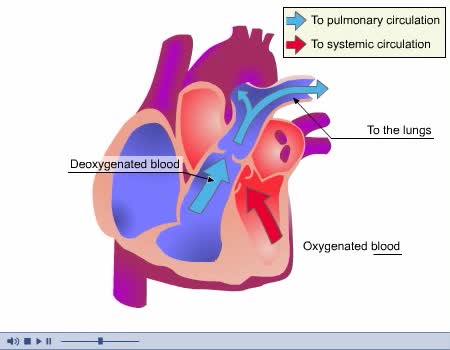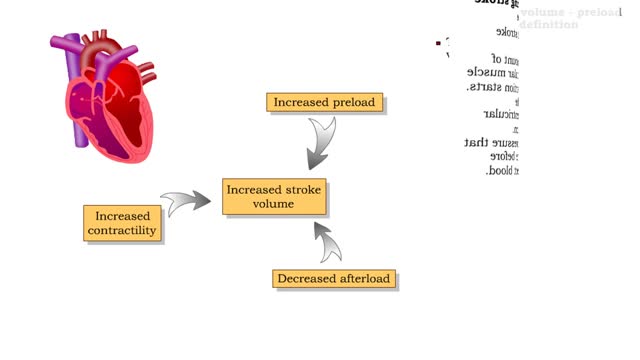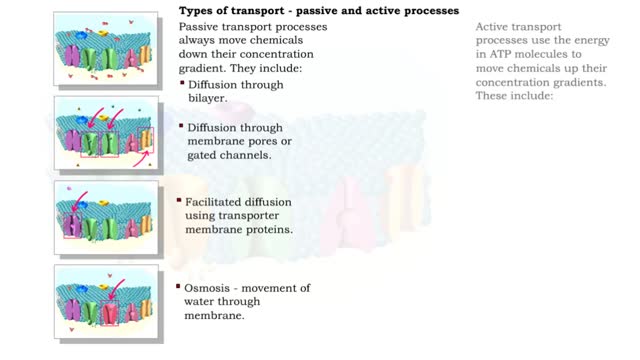Search Results
Results for: 'Passive ventricular filling'
Five phases of cardiac cycle & Atrial contraction
By: HWC, Views: 10683
1. Atrial contraction (atrial systole). 2. Isovolumetric (ventricular) contraction. 3. Ventricular ejection. 4. Isovolumetric (ventricular) relaxation. 5. Passive ventricular filling. Beginning of cardiac cycle • Prior to atrial contraction: • Atria and ventricles are relaxed....
Isovolumetric VC, Ventricular ejection, Isovolumetric & Passive ventricular filling
By: HWC, Views: 10506
• Isovolumetric means that blood volume does not change. • Ventricular blood volume and cell length remain constant. • With valves closed and contraction continuing, ventricular pressure continues to rise. • Ventricular pressure rises above arterial pressure. • Increased ventr...
Stroke volume - preload, sarcomere length and Frank -Starling law
By: HWC, Views: 10245
• Sarcomere length affects muscle tension and the force of contraction. • Increased muscle stretch (increased sarcomere length) at the beginning of contraction increases tension produced during the contraction. • A more forceful contraction ejects more blood, thus increasing stroke volu...
Electrical changes in the heart
By: HWC, Views: 10425
• ECG: Graph of the voltage changes that occur during the cardiac cycle. • Readings are taken by electrodes placed on the surface of the body. • Electrodes detect voltage changes caused by the electrical activity of the heart. • P wave = atrial excitation (atrial depolarization). ...
Automated external defibrillator (AED)
By: Administrator, Views: 13732
An automated external defibrillator (AED) is a portable electronic device that automatically diagnoses the life-threatening cardiac arrhythmias of ventricular fibrillation and pulseless ventricular tachycardia, and is able to treat them through defibrillation, the application of electricity which...
By: HWC, Views: 10584
Preload definition • Preload is the degree of stretch of cardiac muscles cells prior to contraction. • The amount of stretch is related to the end-diastolic volume[EDV]. • Increased return blood flow from the veins increases end-diastolic volume. Cardiac muscle sarcomeres stretch and ...
Definitions of stroke volume, preload definition & Factors influencing stroke volume
By: HWC, Views: 10431
• Stroke volume is directly correlated with cardiac output-the greater the stroke volume the greater the cardiac output. • Stroke volume represents the difference in the amount of blood between: • the volume in the ventricles at the end of diastole (end-diastolic volume EDV); • the ...
Type of Transport - Active and Passive Processes
By: HWC, Views: 10916
Active transport moves materials from lower to a higher concentration, while passive transport moves materials from higher to lower concentration. Active transport requires energy to proceed, while passive transport does not require the input of extra energy to occur. Transport processes that ...
Advertisement



